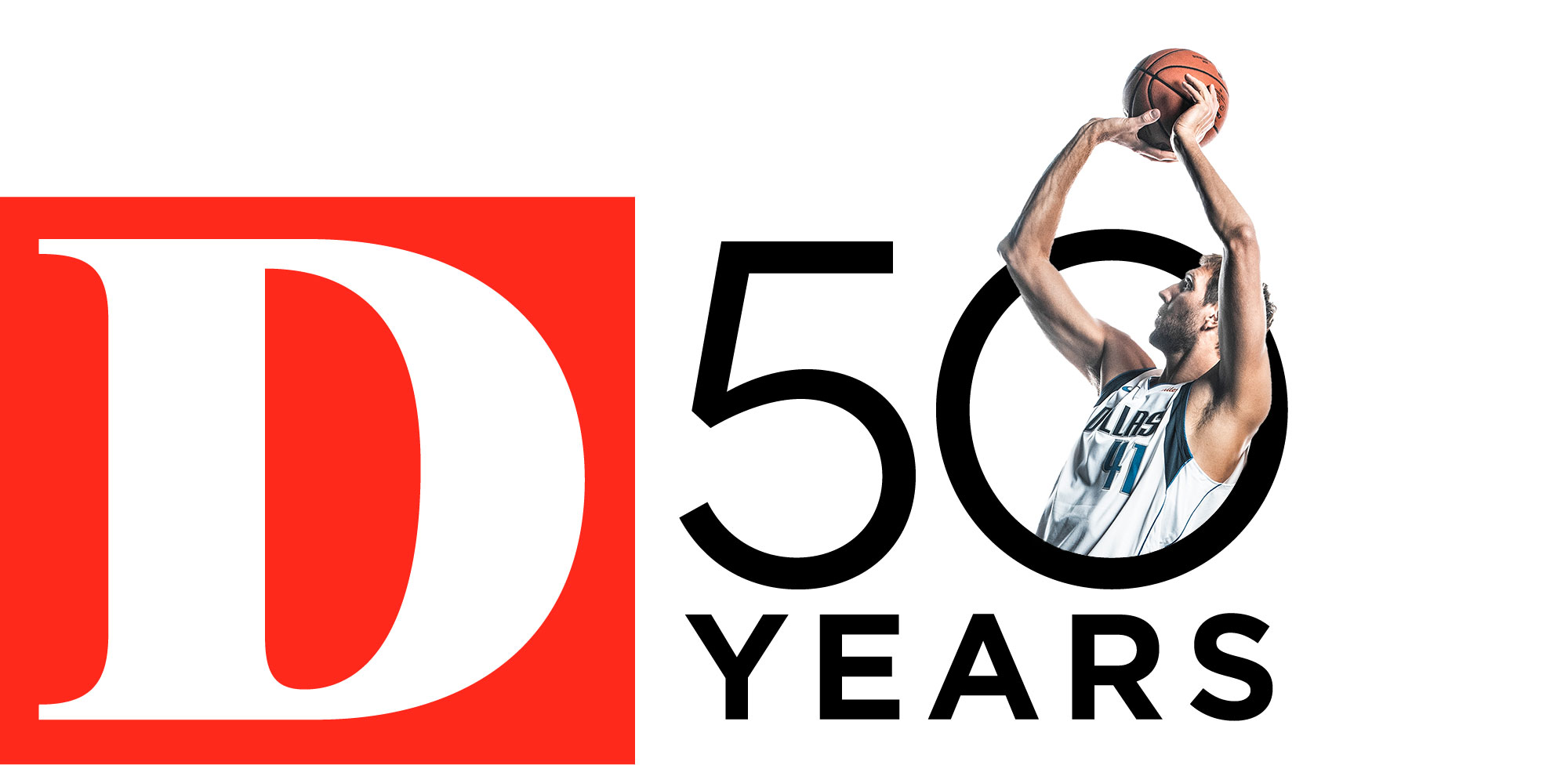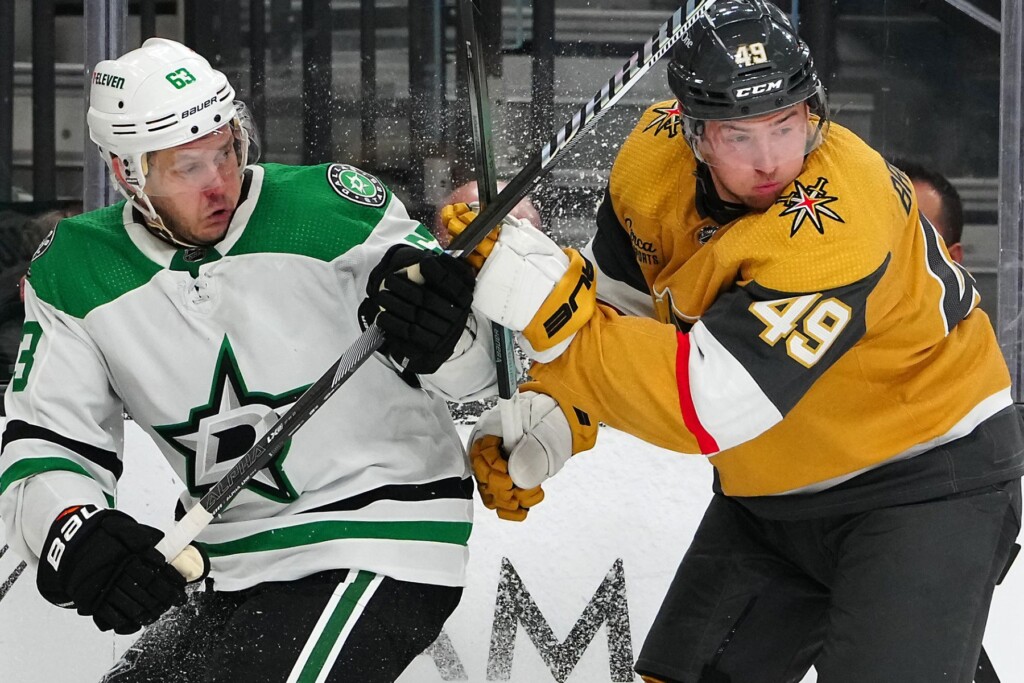Tuesday night had all the earmarks of a familiar story. It was the Dallas Stars versus the Vegas Golden Knights in a long-anticipated rematch of the Western Conference Finals, and both teams were coming off wins, just as they had to set up that series. It was these teams’ seventh contest since May 19, and the fourth decided by an extra frame. Once again, Vegas came out on top, taking a relatively tight 3-2 contest. That prompts an obvious question: why did the Stars lose? It also prompts an overdramatic one: how much has really changed for these Stars?
The good news is the Stars didn’t seem to have any issues with being physically invested. Jason Robertson and Miro Heiskanen landed the best hits of the night. Jamie Benn and Mason Marchment landed the best punches of the night. Dallas did its best to make it a street fight but still lost. If you were among those worrying that the Golden Knights pushed this team around, rest assured they did not.
So, if not that, did the Stars lose because of growing pains adjusting to the new lines? I can buy this for the season opener against St. Louis, when Dallas was down Roope Hintz. Marchment and Tyler Seguin didn’t quite look synchronized with Matt Duchene because they didn’t play together at all. Esa Lindell and Jani Hakanpaa both have new partners, while Sam Steel and Craig Smith are completely new faces. But I can’t buy the same excuse for the Vegas game, not with Hintz back on the ice as the Knights were down half their starting blueline (Alex Pietrangelo, Alec Martinez, and Zach Whitecloud).
The truth is, with just two games in the books, there’s nothing worth analyzing on a player level. But these games are instructive for what they represent when it comes to perception. The Stars are the class of the West. They have the second-best odds to win the Cup according to one fancy mathematical model, and the best odds to win the West according to another. Right now, hockey’s most significant insider has Heiskanen winning the Norris Trophy. This year, the Stars will be one of the most-televised teams in hockey. They’re under a microscope for a change. From now on, each game is not about whether they can make the playoffs. It’s about how prepared they’re gonna be when they do, and if that preparation can pay off with a Stanley Cup.
These are different expectations, and how often they’re good and to what degree will be the true test. This is why Heiskanen has a legitimate path to the Norris not because Elliotte Friedman says so, but because Heiskanen’s defense is elite and he’s sixth overall in defenseman scoring since the start last season. That’s also why these early-season performances from Jake Oettinger are so reassuring. He’s been excellent ever since he started playing meaningful games in 2020, currently ranking ninth overall in goals saved above expected during that span. The questions are about consistency. How often can they sustain this? How often can they turn these performances in as part of a high-level group effort against the league’s best? And so forth.
If there’s any lesson learned after the Vegas game, it wasn’t that Dallas struggled to get off to a hot start or that it leaned on players with underdeveloped chemistry. It wasn’t about the overtime demons either, although we’ll probably revisit that discussion eventually. And it wasn’t necessarily about one specific player. To me this was Muhammed Ali getting even with Joe Frazier in the rematch, and the tactical way he turned the aggressor’s momentum against itself. In other words, the Vegas game wasn’t instructive for its result but for how the Knights leveraged their experience against Dallas. Except for a blink-and-you’ll-miss-it goal by Joe Pavelski, Vegas kept the Dallas’ top line relatively contained. They shut the Stars’ power play down, attacked the center of the ice, punished slow defenders like Esa Lindell, and forced Dallas to attack along the exterior.
Still, consider how much stronger Vegas had to be just to win in a shootout. That bodes well for Dallas, who just needs to figure out how it can exploit Vegas’ weaknesses. Players who didn’t make the scoresheet looked primed to do so. Wyatt Johnston appears a little faster, and a little meaner, too. And with the way Benn played, I just might be fantastically wrong about his impending regression.
The problem is I didn’t see this as Game 2 of the regular season. I saw it as Game 7 between the best in the West, and Vegas is 5-2 over that span. The Stars are a heavyweight on a lightweight playground. But they’re not the only heavyweight. It’s not the worst thing in the world to be reminded so early in the season there are only a handful of teams who can walk just as tall. That’s why Dallas’ approach to Vegas stood out. They fought like the younger man, literally and figuratively. It was an admirable but mistaken approach, just as it was last time.
So if a rubber match is in the offing, the Stars won’t turn the tide through size, speed, or ferocity. They’ll do so by leveraging experience and learned lessons against Vegas the way Vegas just did to them. Then we’ll know whether or not this Dallas team has truly changed. Because that change, or lack thereof, will make all the difference.
Author







